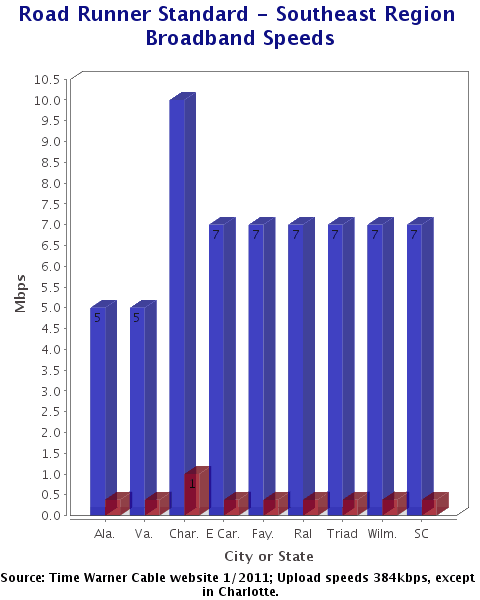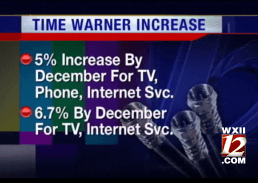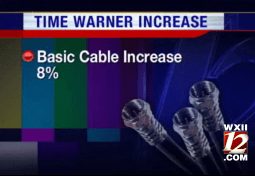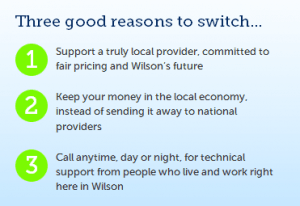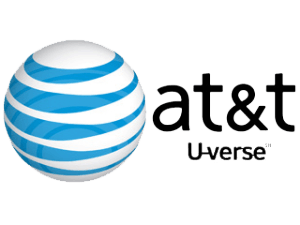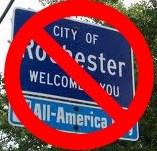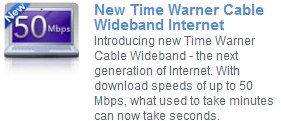
Haggling for a better deal from your telecommunications provider is beginning to resemble buying a car.
Less than a day after writing up our experiences with the Customer Retention Department of Time Warner Cable, there have been new developments.
Because our account was configured for a disconnect, a Time Warner retention specialist called us, this time from Albany, N.Y. His role — to win us back as a Time Warner customer. His office formerly called customers who turned in their equipment and canceled service, but now that the company is losing more cable-TV customers than it adds, they are now trying to stop disconnects at all costs.
Incredibly, this high-level office was authorized to provide deals even Time Warner’s regional office could not touch.
The best deal we could negotiate with the Buffalo office included the company’s triple play package, Road Runner Turbo, one DVR box and one digital set top box for $132 a month.
That was until we received a call this morning with an offer that blew that out of the water — $79.95 a month for the company’s triple-play package including a year of free DVR service. Putting the two packages together to compare pricing, Albany’s Time Warner office was willing offer that same package for $106.90, plus tax.
That’s a difference of $25 a month.
That’s quite a difference.
But then, on cue, Time Warner proved our earlier point about confusing and conflicting information being thrown at customers.
Minutes after agreeing to that offer, which would have cut some additional red tape from the earlier deal, we were called back and told the deal fell apart, at least temporarily.
It seems customers who agree to an earlier offer end up locking themselves out from something even better. Because we worked with another retention specialist who partially entered an order into the system, and despite the fact the company called us with something better, they reneged on the better offer.
“I can’t even begin the order,” we were told. “As long as a pending order is in place, there is nothing we can do.”
We found it odd the company would call us with an offer we couldn’t get. We were then told that office is authorized to make offers to customers who:
- downgrade to one service;
- have a pending disconnect order;
- actually disconnect service.
We asked if we pulled out of our earlier retention deal, would we then be qualified to proceed with his? He repeated the three conditions and said he’d love to offer us something but until one of those conditions were in place, he could not.
It’s remarkable Time Warner would offer customers one deal they insist was the best available price, only to have another employee cut $25 off the top without breaking a sweat. It’s quickly reminding me of my last car buying experience — always a major headache. So many tricks, traps, and games.
We’ll be bringing this whole matter up with the company shortly.
In the meantime, we’re going to modify our advice to customers searching for a better deal. Call and schedule a disconnect or downgrade of your service two weeks out, tell the agent you are not prepared to discuss a retention deal, and then wait for them to call you a few days later. Ours originated from the Time Warner Sales Center at 1-877-726-0712, for those who check caller ID.
Ask about the triple play $79 offer that includes a year of free DVR service.
Oh, and about the free “DVR service.” We learned Time Warner no longer considers the “service” the same as the “box.” This word salad means customers pay about $8 and change for the DVR hardware, but get the “service” that let’s you record shows on the equipment for free — a $3 value.
We told you it was confusing.
[Updated: 1:02pm ET — We just spoke with Time Warner Cable, who apologized for the confusion over pricing and the follow-up retention call we received. Time Warner Cable will honor any offers made by any of their agents, so with the assistance of a supervisor, we were able to take advantage of this offer after all. They even threw in free Turbo service for a year, free Showtime, and gave us a “whole house DVR” at a special rate, bringing the total out of the door price to around $116 a month, including all equipment. When Road Runner Extreme (30/5Mbps) service arrives, that will run an additional $10 per month. The entire ordeal netted us almost $60 a month in savings, more if we didn’t upgrade to the “whole house DVR.”]


 Subscribe
Subscribe




